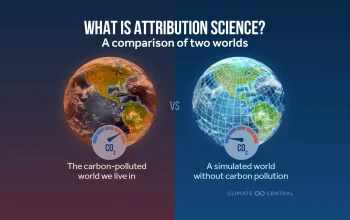Technology is pervasive in the world of finance, from algorithmic trading to robo-advisors, digital finance to blockchain, so it’s very important that our students become familiar with that landscape and understand the intersection between finance and technology.
At ISBF New Delhi, India’s Best College for Accounting ⎮ Finance, students have the opportunity to study this exciting intersection through an advantaged curriculum .
FinTech
There is no doubting that the introduction of FinTech has revolutionized the way business is conducted.It refers to the innovative integration of ’finance’ and ’technology’, which facilitates the processing of business functions being conducted much faster and with greater efficiency relative to timely government.
With good user interfaces in software packages, positive user experiences over broadband internet, user-rated friends and family, and savvy new approaches to credit-application evaluation, powerful financial products are coming within reach of almost any business.
FinTech empowers consumers to take control of their financial position and outcomes by finding new and creative twists on leveraging well-known ideas. Consumers can send money person-to-person (P2P), such as through Venmo or WePay; query financial markets and private data to perform investment decisions through new data analytics sites such as Personal Capital and Wealthfront; make self‑directed, algorithm-directed (‘robo’) investment decisions without human advisors’ finesse through new robo- that they support, like through new crowdfunding platforms.
Artificial Intelligence
This use of AI by financial services organisations to allow them to think more quickly, respond more swiftly, predict more accurately and give customers more informed and streamlined experiences, and that can prevent fraud and cyberattacks by identifying patterns no human would have seen, is already changing the way things are done.
More broadly, it can analyse an individual’s digital life and track record as a borrower – an important focus in countries where few people have credit cards.
But neither should you forget that AI is supposed to support, not supplant human decision-making, which means that finance teams should monitor how AI is operating and ensure that it works as part of a team rather than on its own; that information is shared in line with industry rules and regulations; for instance, EU legislators still insist that banks reveal whether their trades are ‘green’ or not.
Blockchain
Blockchain – digital ledger technology – is used as the backbone of cryptocurrencies such as Bitcoin, but it can also be used to make other sorts of business transactions safer and more efficient when it comes to tracking and confirming data about just about anything physical – from the movement of items in a supply chain to legally binding contracts, to payments or royalties.
Blockchain also transforms finance by shortening the time required for know-your-customer (KYC) checks; helping companies understand the level of risk to which their products are exposed, in half the time.
For example companies can make their supply chains more secure by being able to track each stage of a product’s journey from origin to destination, something that is often desirable in developing nations where cash must be kept in hiding places because theft or criminal violence is a real risk. Blockchain-inspired technology can make transactions transparent and immutable without the need for intermediaries, as well as recordkeeping (‘proofs of work’) and contracts – for instance, a person selling something to you agrees to deliver it to you by a certain date.
CFD Brokers
The unprecedented access to underlying price action available through CFD trading
Lower risk, greater rewards: Simultaneously avoiding the need to purchase the underlying asset
and the associated costs while maximising any profits through CFD trading is what sets it apart from
other types of investments.
Regardless, CFD brokers make money either through spreads or through commissions. Commissions are directly generated by winning trades, while spreads are more equally divided between winning and losing trades, which is why CFD brokers are even more incentivised to create winning trades with commissions rather than spreads.
Such regulated brokers guarantee the best possible customer service thanks to the fact that they have to abide by the rules of the organisations who are responsible for consumer protection; regulators provide a direct channel through which traders can get in touch with the regulator to report complaints or seek redress. A regulated firm has to adhere to whatever rules are set by its regulator – any CFD trader keen on being successful should choose one that’s regulated by a reputable regulator; also, they should pick mobile-friendly platforms, tight spreads and an array of flexible account types that make trading effortless and potentially lucrative.








